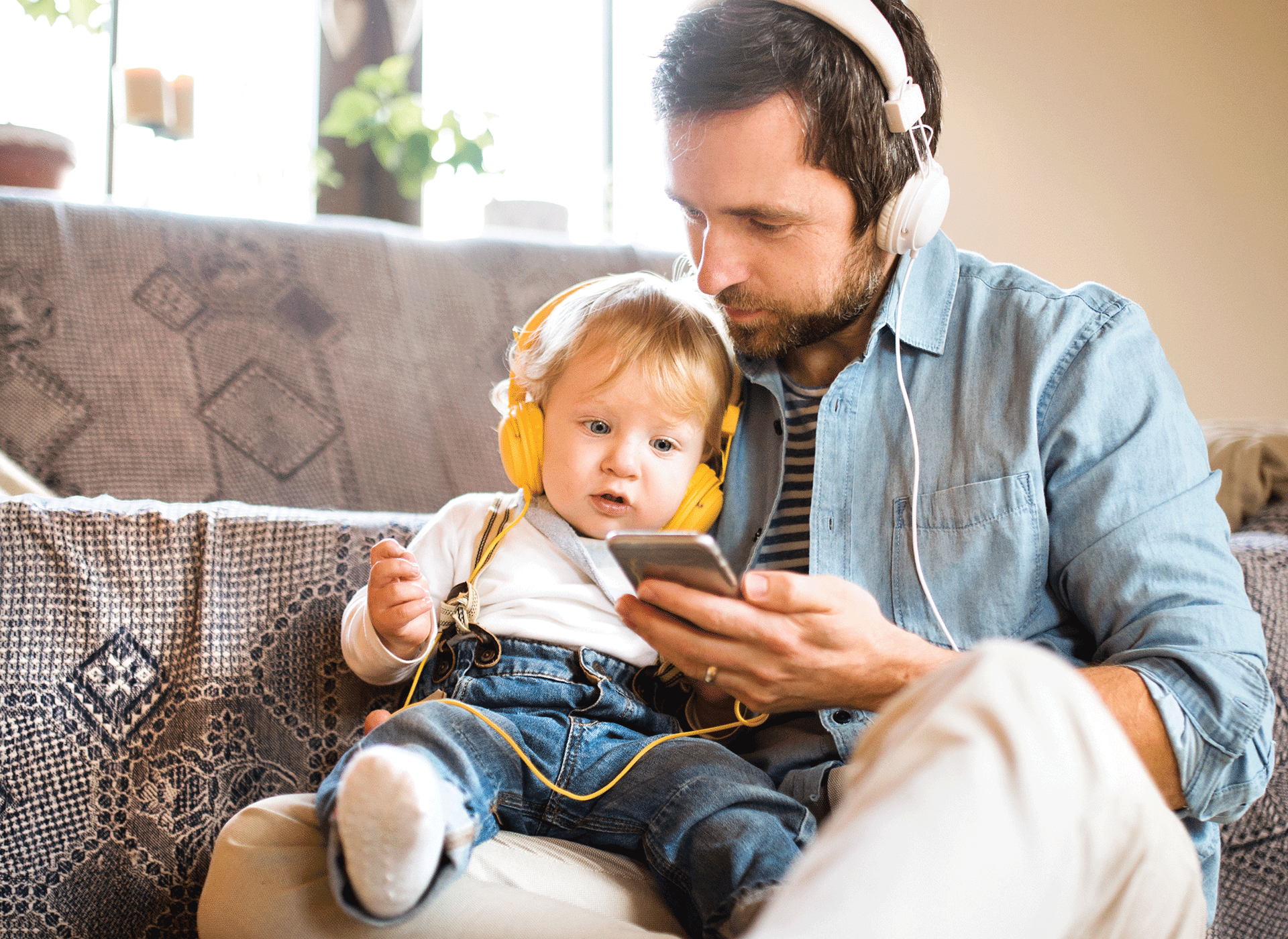
Get your family moving to a new, more mindful rhythm.
Music died a slow death in our family home. It began with an eye-roll when Passenger declared for the tenth time that week that ‘you only know you love her when you let her go,’ and ended in out-and-out war over whose phone should connect to our car Bluetooth. My husband and I suffer from a particularly bad case of clashing tastes. He loves Irish rebel songs and punk rock, whilst I am obsessed with British folk and show tunes. Eventually, the headphones went on and the arguments ceased. Our house, once so joyfully musical in the early days of our relationship, was quiet. It wasn’t until having my son prompted thoughts about my own upbringing, that I realised the significance of what we’d lost.
Music and memory
Some of my favourite childhood memories can be triggered by hearing a song – a phenomenon researchers say is fairly common. Music doesn’t just help us regulate our emotions, develop our language skills and strengthen family bonds, it also serves as an autobiographical hook for us to attach our life experiences to. To this day, the opening strains of Neil Diamond’s 60s classic Sweet Caroline elicits a memory so vivid, I can almost taste the salty bacon and egg breakfasts we enjoyed most Sundays of my youth. If my husband and I continued our Spotify-stalemate, would our son be able to say the same?
Sharing our sounds
By not sharing our music, our child would miss out on parents dancing around the living room after a hard day, chores made easier by a fun beat and languid weekend breakfasts cooked to old-school melodies. Worse still, when we were no longer around, he wouldn’t be able to evoke our memory by simply playing our favourite albums. We decided it was time to unplug our headphones and dial down our differences, and our home has been blissfully noisy ever since. These days, we take turns picking the music for car rides and smile as our baby coos from the back seat.
If you’d like to get your family moving to a new rhythm, there are simple ways you can introduce the benefits of musical parenting to your household.
Top tips for musical parenting
Registered music therapist Caitlin Bull shares how to incorporate music based on your family’s life stage:
Babies
Babies love the sound of our voices and they don’t care if we can’t carry a tune. Singing to babies can develop the language centre of their brains and strengthen bonds with their caregivers. To harness the most benefit, Bull suggests maintaining good eye contact, using exaggerated facial expressions and movements to keep them engaged and alternating the tones and notes of your voice.
Toddlers
This is the age that many parents find their speakers overrun by music aimed solely at children. This doesn’t have to be the case, says Bull. “Don’t be afraid to play your favourite music around the house. Exposing kids to all kinds of music throughout their life will hold them in good stead as they get older.”
In addition to helping develop motor skills, music can also assist toddlers in familiarising them with the routines of family life. Bull suggests using songs to engage children in everyday tasks; sing a pack-away song for tidying toys, dishes or washing. Sing a song about buckling up in the car seat or going to sleep. Make music a part of your routine and make the mundane tasks of everyday life a pleasure for your child.
Children
As children progress through primary school, they may begin to think about learning a musical instrument. The benefits of this are well-documented; it can help kids learn patience, discipline and problem-solving skills. The key is to make it fun. “Find an instrument your child is interested in and take it easy at the start. Focus on music being enjoyable.”
This is also a wonderful time to begin to introduce children to the concept of using music as a tool for emotional regulation. Bull suggests discussing the ways you use music to influence your mood
and even encourage your kids to make their own ‘mood playlists’. “Talk about the songs you use to get pumped up to exercise or motivated to clean the house. Talk about the music that makes you want to dance. Talk about the music that you listen to when you’re very sad, and then the music that makes you feel better.”
Adolescents
Parents and teens notoriously clash when it comes to music played in shared living spaces. But with music forming such a big part of adolescent identity, Bull says that learning about the genres and artists your child likes can be a wonderful way to connect. “My own dad used to ask me to put my favourite new music onto his iPod every couple of months. Then he’d tell me what he liked and what he’d deleted. You could ask your kids to do the same… You might find their music awful initially, but give it a chance and try to understand what they like about it.”























